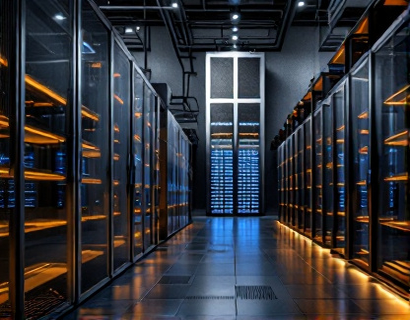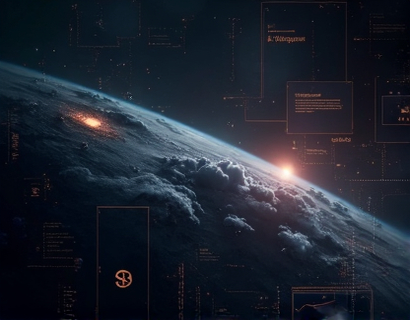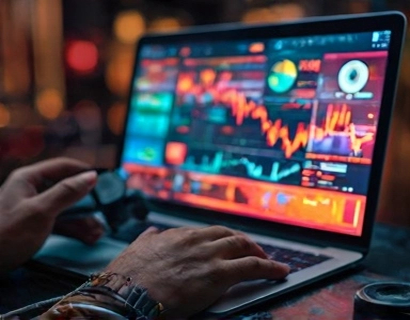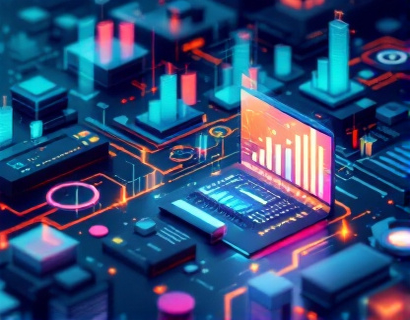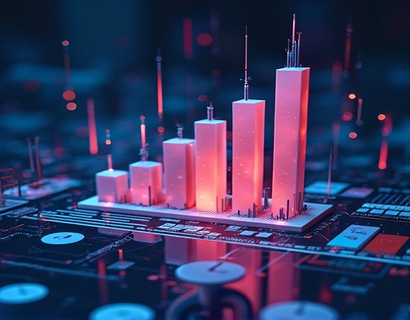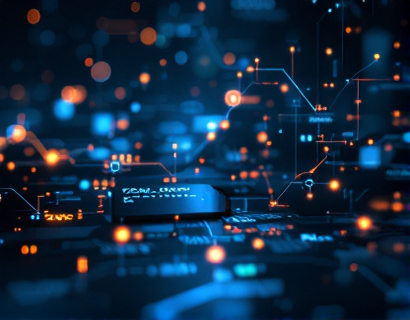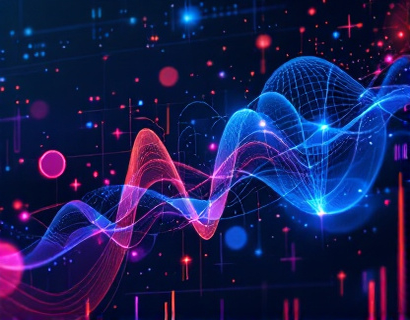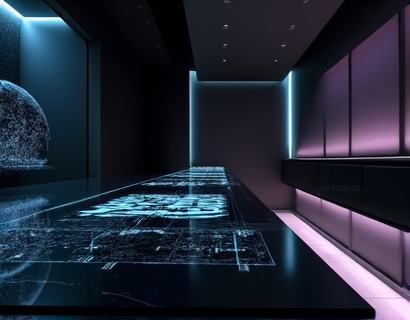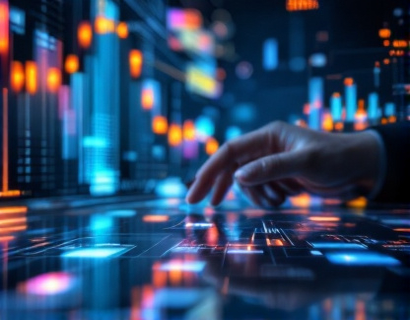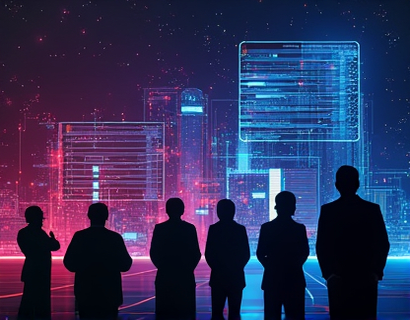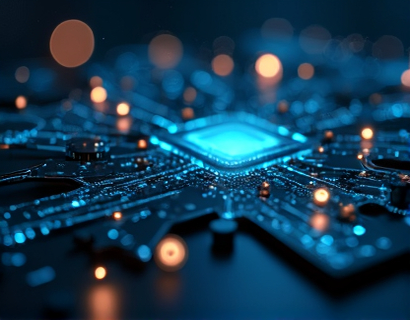Revolutionizing User Experiences: The Synergy of Crypto and AI
The intersection of cryptocurrency and artificial intelligence (AI) is ushering in a new era of digital transformation, one that promises to revolutionize user experiences and redefine the boundaries of service delivery. This fusion of technologies is not just about enhancing existing systems but creating entirely new paradigms of interaction and efficiency. For tech innovators and early adopters, this convergence offers a glimpse into a future where digital journeys are seamless, intuitive, and powered by advanced algorithms and decentralized networks.
The integration of blockchain technology with AI is creating a robust framework for building applications that are not only more secure but also more responsive to user needs. Blockchain's inherent transparency, immutability, and decentralization, when combined with AI's ability to learn, adapt, and automate, results in a powerful synergy that can transform various sectors, from finance and healthcare to entertainment and beyond.
Enhancing Security and Trust
One of the most significant advantages of combining crypto and AI is the enhancement of security and trust in digital interactions. AI algorithms can analyze vast amounts of data to detect patterns and anomalies, which is crucial for identifying potential security threats in real-time. When integrated with blockchain, these systems can ensure that transactions are not only secure but also verifiable and tamper-proof. This dual-layer security approach is particularly vital in an era where cyber threats are becoming increasingly sophisticated.
For instance, AI-driven security protocols can monitor blockchain networks for unusual activity, automatically triggering alerts and countermeasures to prevent fraudulent transactions. This proactive approach to security not only protects users' assets but also builds a higher level of trust in digital platforms, encouraging more widespread adoption of blockchain-based services.
Personalized User Experiences
AI's strength lies in its ability to process and analyze large datasets to deliver personalized experiences. In the context of crypto and AI, this means that users can enjoy highly tailored services that adapt to their preferences and behaviors. For example, a decentralized finance (DeFi) platform powered by AI can analyze a user's transaction history and investment goals to recommend optimal strategies and portfolio allocations.
Moreover, AI can enhance user interfaces by predicting user needs and automating routine tasks. Chatbots and virtual assistants, driven by AI, can provide instant support and guidance, making the user experience more intuitive and user-friendly. This level of personalization not only improves user satisfaction but also increases engagement and loyalty to the platform.
Efficient Data Management and Analytics
The combination of AI and blockchain offers unprecedented capabilities in data management and analytics. Blockchain's distributed ledger technology ensures that data is stored securely and transparently, while AI can process and derive insights from this data at scale. This synergy enables organizations to make data-driven decisions with greater accuracy and speed.
For instance, in the healthcare sector, AI can analyze medical records stored on a blockchain to identify trends and predict patient outcomes, leading to more effective treatments and personalized care plans. Similarly, in supply chain management, AI can track and analyze data from various blockchain-based sources to optimize logistics and reduce costs.
Decentralized Intelligence
The concept of decentralized intelligence (DI) is emerging as a key application of AI and blockchain. DI involves distributing AI computations across a network of nodes, leveraging the collective power of the network to perform complex tasks. This approach not only enhances computational efficiency but also ensures that no single entity has control over the entire system, promoting decentralization and fairness.
In practice, decentralized AI models can be trained using data from multiple sources, ensuring a more diverse and representative dataset. This leads to more robust and unbiased AI algorithms. For tech innovators, this means access to powerful AI tools that are both scalable and secure, enabling them to push the boundaries of what's possible in their respective fields.
Smart Contracts and Automated Services
Smart contracts, self-executing contracts with the terms directly written into code, are another area where AI and blockchain intersect to revolutionize service delivery. When combined with AI, smart contracts can become even more intelligent and adaptive, automatically adjusting their parameters based on real-time data and conditions.
For example, in the insurance industry, AI-driven smart contracts can assess claims in real-time, using data from IoT devices and other sources to determine eligibility and payout amounts. This not only speeds up the claims process but also reduces the potential for fraud and human error. Similarly, in the realm of decentralized marketplaces, AI can optimize pricing and match buyers and sellers more efficiently, creating a more dynamic and responsive market environment.
Enhancing Creativity and Content Creation
The creative industry is also witnessing a transformation thanks to the integration of AI and blockchain. AI-powered tools can assist artists, writers, and musicians in generating new ideas, creating content, and even composing music. Blockchain ensures that creators can securely and transparently monetize their work, receiving fair compensation for their contributions.
For instance, AI-generated art can be tokenized on a blockchain, creating unique digital assets that can be bought, sold, and traded. This not only opens up new revenue streams for creators but also provides collectors with verifiable and scarce digital art pieces. The combination of AI's creative capabilities and blockchain's transparency and security is redefining the way content is produced and consumed.
Challenges and Considerations
While the potential benefits of integrating AI and blockchain are vast, there are also challenges and considerations that need to be addressed. One of the primary concerns is the scalability of these technologies. Blockchain networks, particularly those using proof-of-work consensus mechanisms, can face performance bottlenecks as the number of transactions increases. AI algorithms, while powerful, require significant computational resources, which can be a barrier for smaller organizations.
Another consideration is the regulatory landscape. As these technologies evolve, governments and regulatory bodies are beginning to take notice, leading to the development of new rules and guidelines. Tech innovators must stay informed and compliant with these regulations to ensure the sustainable growth of their applications.
Future Prospects
The future of crypto and AI is bright, with ongoing research and development promising even more innovative applications. As the technology matures, we can expect to see more seamless integration across various industries, leading to more efficient, secure, and user-centric digital experiences. The potential for cross-chain interoperability and the development of more advanced AI models will further enhance the capabilities of these combined technologies.
For tech innovators and early adopters, embracing this synergy is not just an option but a necessity to stay competitive and relevant. By leveraging the power of AI and blockchain, they can create groundbreaking solutions that not only solve current problems but also anticipate future needs, shaping the digital landscape for years to come.





